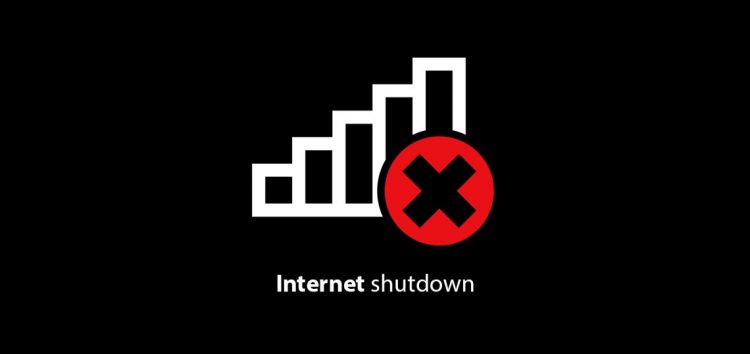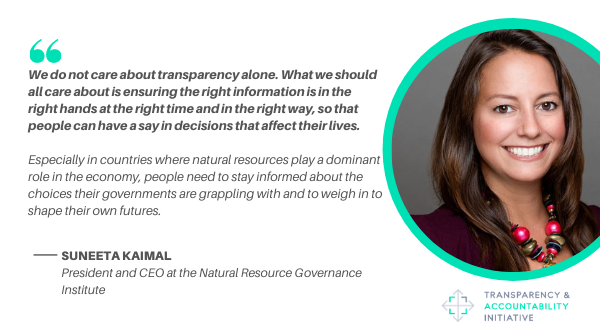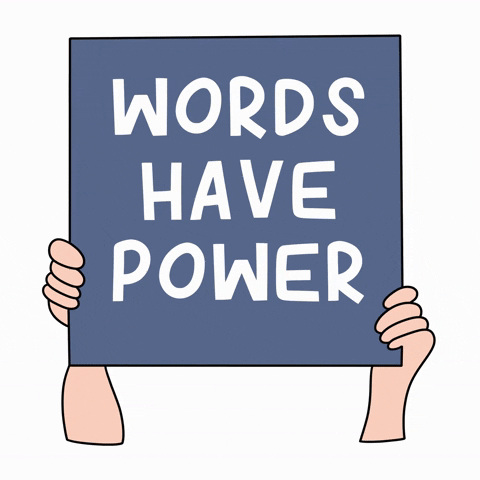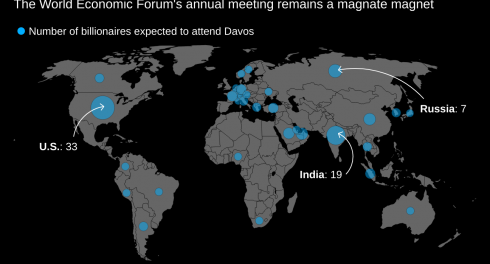Highlights:
- Police in the newsroom
- Shuttered
- Dealing in the dark
- Accountability don’t come cheap
- Dreams deferred
- Crusader limits
- Words matter
- TAI Spotlight: Collaboration Case Note: From open to inclusive governance – Voice partnership
Police in the newsroom

Photo Source: REUTERS/Simon Newman (BRITAIN) via Arab News
We start with media under threat. Robert Gerhardt reminds us (if we need it) how repressive governments worldwide cracked down on press freedom and how these brazen moves have had a chilling effect on journalists. Sadly, no shortage of examples, including the murder of Benjamin Morales Hernandez in Mexico (the 13th journalist to be murdered this year), the arrest of Rozina Islam for uncovering Bangladesh government corruption over the handling of the Covid-19 outbreak, and a suspected sinister plot by the government in the death of a journalist in Azerbaijan over a soccer feud.
Clampdown comes via legislative moves, too. The Nigerian government is seeking control over online media in a new bill while it appoints a new lead for the nation’s controversial broadcasting regulator. In Hong Kong, 500 police locked down the newsroom of Apple Daily, arresting five executives, all justified under the new national security law. The chilling effect is clear, although local activists like Loh Tsz-wai are urging fellow Hongkongers to keep up some form of activism and resistance to authoritarian rule.
Alexander Dukalskis shares insights on such transnational repression from his new book, explaining how authoritarian leaders use “promotional” and “obstructive” tactics to manage their image abroad and at home.
Of course, big corporations can be part of the problem as well as big government. Attempts to control the media are not new, but the ways in which they are being carried out today are cause for worry. Anya Schiffrin leads the call to action, editing a new book examining media capture in the digital age. Seems the team at Forum on Information and Democracy have been reading up, as their Working Group on the Sustainability of Journalism propose ‘A New Deal for Journalism’ to save independent media from a possible “extinction event”.
Shuttered

Image Source: TechNext
Three weeks into the ongoing Twitter ban in Nigeria, the Civil Society Legislative Advocacy Centre laments shrinking civic space and dwindling democratic values, Cheta Nwanze cautions that the twitter ban could be Nigeria’s full-throttle descent to autocracy, and the U.S. renews condemnation.
Julie Owono takes a sweeping look at internet shutdowns in Africa and their threat to democracy, highlighting why it is important to understand who orders and facilitates them. Ethiopia provides an immediate case in point as authorities ordered a “period of silence” before yesterday’s parliamentary elections. This included a ban on campaign rallies and new rules for media outlets not to broadcast any kind of election-related activities. In defense, the authorities say the period of silence was not designed to muffle the media, but to advance voter education, although Facebook removed a series of fake accounts which it had linked to the Ethiopian government.
Staying in the region, ARTICLE 19 Eastern Africa is worried about Rwanda’s draft data protection law, calling for revisions to ensure the proper protection and balancing of the rights to privacy and freedom of expression.
Dealing in the dark
Turning to pandemic responses, Julia Kaufman, Janeen Madan Keller, and Javier Guzman ask why we remain alarmingly in the dark about global COVID-19 vaccine procurement deals. Equally concerning is the lack of transparency around the WHO’s million-dollar contract with consulting giants, uncovered by an audit that revealed several broken procurement rules.
Regarding economic recovery, we recently covered the new European Union (E.U.) anti-fraud agency, seems they will have their work cut out. Analysis by civil society organizations from across Europe reveals that the E.U.’s commitment to spend €672.5 billion on post-pandemic recovery is at risk of corruption and misuse due to a serious lack of transparency and accountability mechanisms.
How to pay for all that spending? Commentators continue to offer reflections on the nascent global tax deal that is meant to help. Learnmore Nyamudzanga argues that the agreement excludes Africa and other tax jurisdictions, and the G20 has an opportunity to remedy the disproportionate benefits that wealthy countries would gain. Andrea Willige argues there is still a lot of work to be done to reach tax equity. Perhaps it will help that Europe has tightened its tax transparency laws for large multinationals and the U.S. House of Representatives passed the Disclosure of Tax Havens and Offshoring Act, which would require multinational corporations registered with the SEC to publicly disclose key financial information on a country-by-country basis.
Gargee Ghosh at the Bill and Melinda Gates Foundation urges this is a time to go big for global recovery. Glad to see that vision extends to building fairer tax systems and mobilizing data for development.
Accountability don’t come cheap
Of course, funding to “build back better” will have increased chances if civil society have support to play an active monitoring role. That extends to World Bank lending – past time for dedicated civil society funding? Open Government Partnership coordinates a call for 1% of the forthcoming International Development Association replenishment to go to civil society to strengthen independent monitoring. Add your name here.
In a similar plea to fund civil society, Shannon O’Neil recommended the U.S. government bypass corrupt governments to provide aid directly to CSOs to combat corruption in Central America.
Want to put your faith in technology? Some “govtech” wins to celebrate this week, including new joint measures to tackle costly inefficiencies leverage data and e-governance capabilities in Nigerian ports, and New Zealand’s government agreeing to put cameras on boats to prevent unsustainable fishing. Latin American organizations hope for similar measures in the region to combat overfishing by Chinese fleets.
Dreams deferred
Staying on the environmental front, good news for the energy transition as Chinese bank, ICBC, decides to withdraw coal financing. What of those lobbying against change? Barry Eichengreen argues that the best way to overcome interests against a carbon tax is to buy them off. Perhaps a new $1 billion investment from Rockefeller and Ikea foundations for renewables in developing countries can shift some incentives.
What of countries still hoping to live out an oil dream? Even as Cambodia celebrates its first drop of offshore oil, the sector faces an early crisis with the company operating set to be liquidated, ongoing governance concerns, and the overhang threat of diminished demand.
PwC urges mining companies to double down on environmental, social, and governance (ESG) standards, including embracing tax transparency.
Want a broader overview? Natural Resource Governance Institute have updated their Resource Governance Institute Index – look for staggered release of 18 country assessments starting with Guinea. For its part, the Responsible Mining Foundation’s latest brief highlights the rarity of corporate transparency in the commodity trading sector.
What are the political challenges facing actors pushing for accountability in the extractive industries? Publish What You Pay (PWYP) ‘s Elisa Peter and Olena Pavlenko shares their firsthand experiences of confronting political obstacles in the fight to improve extractives governance and how they are navigating these barriers in the ongoing Columbia Center on Sustainable Investment (CCSI) ‘s series on the politics of transparency and accountability.
TPA Full Disclosure: Suneeta Kaimal on the value of transparency, participation, and accountability in the extractive sector

“It’s not fair,” President and Chief Operating Officer of the Natural Resource Governance Institute, Suneeta Kaimal, recalls that was one of her favorite phrases as a child. Add to that her name “Suneeta,” which means justice in Sanskrit, and see why she believes she is destined for a career fighting for social justice! TAI spoke with Suneeta on unseating deep-rooted, systemic injustices in the extractive sector and how transparency and participation tools can be used to create greater accountability, and restore power and agency to the people, on whose behalf governments should manage natural resources.
Crusader limits
Mexico’s standing on the Latin America Anticorruption Assessment declined for the second consecutive year despite government’s claim to have eradicated corruption. Brazil didn’t do any better. Brian Winter and Geert Aalbers argue that both countries’ one-man crusade against corruption won’t work. Instead, putting, “strong and independent institutions front and center, building on the growing maturity of compliance in the private sector, would be a good place to start.”
Citing example from Malaysia, Katherine Mulhern give tips on how Africa can turn the screw on advisor-enablers and recover stolen national assets.
After months of designing an accountability platform to encourage feedback from the field, Loop is sharing lessons from this exercise in their ongoing series. Check out what they have learnt so far from designing language translations for users and how to safely receive and manage the sensitive stories of local people.
Words matter

Philanthropy has been paying a lot more attention to its practices and dynamics of late. This extends to the language funders use. A case in point the rebrand of Hewlett’s Global Development and Population program to Gender Equity and Governance. Dana Hovig offers a thoughtful reflection on the reasoning for the name change.
Open Society Foundations’ program officers, Soheila Comninos and Nina Madsen, draw lessons from their experience of funding criminal justice reform in Latin America, especially why donors should support leaders of the movement who are directly impacted by the system.
Debi Blizard and Zoë True offer five ingredients needed to harness the power of collaboration and achieve full impact from philanthropic funding, while Lindsay Louie writes on the importance of breaking out of comfortable habits and existing networks to experience new things and share power with others in service of creating a more equitable world.
In the U.S. context, Christina Asquith explains why nonprofits need to embrace transparency, even if the Supreme Court rules to protect donor privacy. Her argument: “Transparent finances help founders and board members make the right decisions in the first place since they know they’re operating under public scrutiny.”
Other stories
- Increasing transparency in investment facilitation: focused support is needed
- PwC/Big Four: multinational operations, small-town accountability
- CODE blocks diversion of N113m via twitter
- OGP’s approach to peer exchange: the example of beneficial ownership
- Malta ignores OGP letter, signals lack of attention to transparency and accountability issues
- Most NGOs not committed to racial equity, say staff of color
TAI Spotlight: Collaboration Case Note: From open to inclusive governance – Voice partnership
Collaboration Case Note: From Open to Inclusive Governance — Voice Partnership | Transparency and Accountability initiative
TAI funder member, Hewlett Foundation and the Dutch government co-financed From Open to Inclusive Governance Call for Ideas with support of TAI. One goal is to introduce transparency, participation and accountability tools to help communities facing marginalization fight for their rights and fair allocation of resources. This Collaboration Case Note describes learnings form the initiative to date, including on ways to make funder portfolios more diverse, inclusive, and relevant.
A looming debt crunch demands new thinking | Open Society Foundations
Daniel Cash, founder of the Credit Rating Research Initiative, a grantee of the Open Society Foundations, says financial architecture can be developed to allow for systemic growth across the globe if there is enough genuine will to do so—one place to start is with the ultimate resolution of this credit rating impasse.
When a loss becomes a win | MacArthur Foundation
MacArthur Fellow and Director of Rice360, Rebecca Richards-Kortum, Ph.D. writes about what the project gained by being a 100&Change finalist in 2017 despite not receiving the $100 million award.
Learning about impact: An open letter from Hewlett’s Evidence-Informed Policy team | Hewlett Foundation
The foundation’s Evidence-Informed Policy team recently shared a letter with their grantee partners. Now, they are sharing it openly and inviting the public to give feedback on their approach or other ideas. They are waiting to hear from you at [email protected].
BUILDing resilience in people: Public Affairs Research Institute | Ford Foundation
When Mbongiseni Buthelezi became the new leader of the Public Affairs Research Institute, its director had just abruptly resigned, key staff had departed, and funders had suspended their grants. Find out how Buthelezi stepped into his role as PARI’s new director and turned the organization around, especially with the help of BUILD’s flexible funding.
Job listings
- Job postings at Hewlett Foundation – Ongoing
- Job postings at MacArthur Foundation – Ongoing
- Job postings at Open Society Foundations – Ongoing
- Job postings at Luminate – Ongoing
- Job postings at Ford Foundation– Ongoing
- Job postings at FCDO – Ongoing
Calls/Opportunities
- West Africa Civil Society Institute (WACSI) call for papers and articles – Open year-round
- USAID’s Development Innovation Ventures (DIV) grant funding– Ongoing
- Call for research proposals Tax and civil society – No Deadline
- Free Digital Security Training– Ongoing
- Call for proposals: Informality, tax, and the state– Proposals accepted on a rolling basis
Calendar
- Tax Justice Network 2021 Conference – July 6-9, 2021
- Global Investigative Journalism conference – November 3-5, 2021
- National Tax Association conference – November 18-20, 2021
Want to stay updated on happenings around the TPA sector, sign up for our newsletter here


